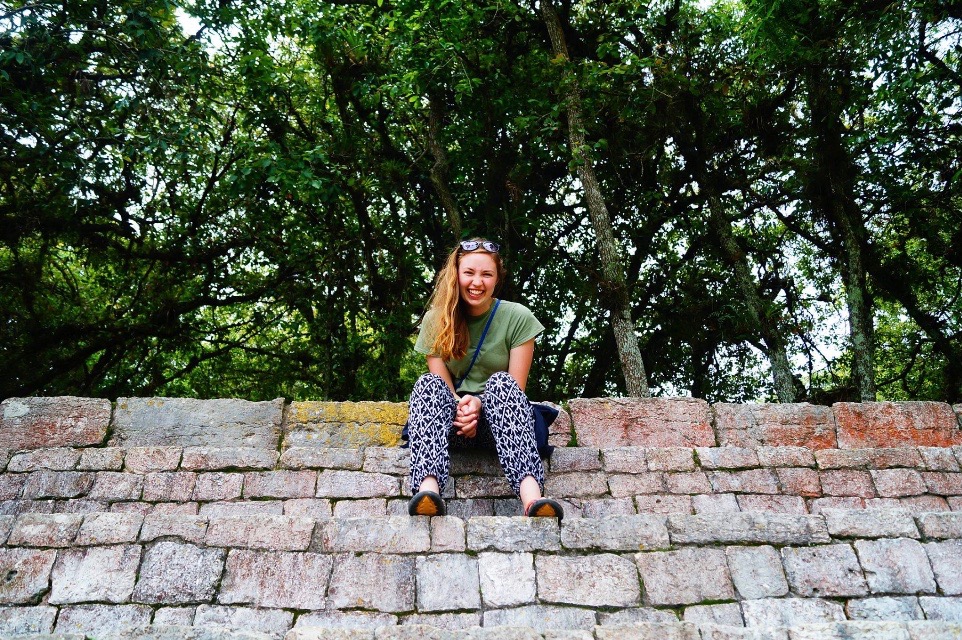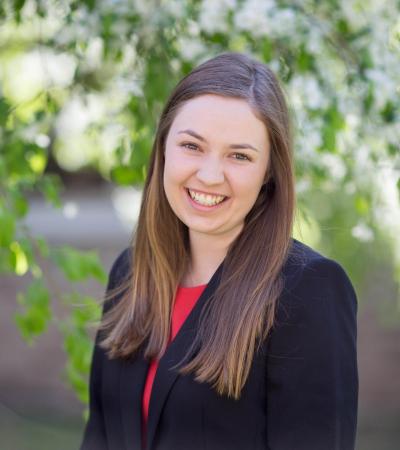Community Health Workers and Mental Health Care in Rural Mexico
Undergraduate Summer Research Grants
 This summer I spent seven weeks researching in Chiapas, México with a Kellogg Undergraduate Research Grant. For my senior International Development Studies capstone project, I wanted to explore mental health care within the context of the developing world. Over a year ago, Compañeros en Salud (CES), the Mexico-based counterpart of Partners in Health, launched a new mental health training program for their community health workers (CHWs). CHWs have traditionally been utilized to offer physical care to patients, so mental health care is a very unique program and a great need within these very rural communities with limited resources and access to care. For my research project, I studied the use of community health workers trained by CES to deliver mental health care in these rural communities. My research question was focused on better understanding the CHWs’ level of confidence to minister in a new way to these individuals without access to specialized care.
This summer I spent seven weeks researching in Chiapas, México with a Kellogg Undergraduate Research Grant. For my senior International Development Studies capstone project, I wanted to explore mental health care within the context of the developing world. Over a year ago, Compañeros en Salud (CES), the Mexico-based counterpart of Partners in Health, launched a new mental health training program for their community health workers (CHWs). CHWs have traditionally been utilized to offer physical care to patients, so mental health care is a very unique program and a great need within these very rural communities with limited resources and access to care. For my research project, I studied the use of community health workers trained by CES to deliver mental health care in these rural communities. My research question was focused on better understanding the CHWs’ level of confidence to minister in a new way to these individuals without access to specialized care.
During my seven weeks in Chiapas, I traveled to seven different communities and interviewed a total of forty-one community health workers. There are teams of CHWs of varying size in each of the ten communities that CES works alongside, and they work closely with the doctor at the community clinic. The CHWs have attended classes and received resources to accompany patients who suffer from depression, anxiety and schizophrenia. I visited each of the CHWs in their homes to conduct in-depth interviews on the mental health program. The questions that I asked sought to understand their daily routine, interactions with patients, training, difficulties and successes in their work, and their job motivations. Because the questions were open-ended, I was able to collect an abundant base of qualitative data to look deeper into my question.
The hardest part of the fieldwork experience for me was the language barrier. I spoke fairly basic Spanish when I arrived, and it was enough to conduct an interview. However, during the first week or two I had difficulty in clarifying certain questions, asking good follow up questions, or making enough small talk. It was sometimes disappointing when I would want to share something or ask someone something, but I could not because I did not know how or was afraid to mess up. With each week my confidence grew, and once I let go of that fear of messing up or not saying things quite right, I found I could communicate a lot better and my Spanish started to improve much more quickly. Overcoming this difficulty allowed me to have deeper, more genuine conversations with the women and CES staff members. Through this experience, I learned many new Spanish phrases unique to Chiapas and came to better understand their daily life and culture.
The most rewarding part of the fieldwork experience for me was the genuine hospitality and honesty I witnessed in the women I interviewed. I was a complete outsider visiting their community, and yet they welcomed me, greeted me, offered me a chair and a drink, and asked all about me. After some small talk, they were open with my questions and answered beyond what I asked. One of the best talks that I had with one of the CHWs was when we had a long talk about all of the really hard parts about her job, but then she ended by sharing about all of the positive things in her life like her church outreach program or her kids, who she introduced me to. It was very special for me to share in the lives of these women and see how empowered they are by their work. They were engaged in the program and expressed a genuine desire to learn more and help more people.
I was surprised to find several women disclose that they themselves have struggled with depression and now use their experience to help others, which was an element of my interviews I did not expect but am excited to explore. Throughout my interviews, several recurring themes emerged related to my research question. The women I interviewed were able to talk freely about the classes they attended regarding mental health as well as the resources they have been given for further study and tools for patients. We talked about the regular interactions they have with their patients, and the women explained how they use the tools and strategies from the classes to offer advice and instruction to their patients. They not only help the patients to understand their mental illness, but they also offer coping strategies like making a list of things that make them happy, starting a garden, or visiting friends and taking walks. Additionally, they echoed the benefit of a regular weekly chat with another woman in the community for their patients who often feel very lonely in their illness. The CHWs were also able to articulate the more difficult parts of their job, which most often is gaining the trust of a new patient. However, while being able to identify struggles or gaps in knowledge, they also explained steps they have taken to overcome these difficulties in their work to see better outcomes with their patients. Many of the women I spoke to referred to past patients who had great symptom improvement after months of meeting with their CHW. While several women explained that mental health patients are often more difficult than their other patients with chronic physical illnesses like diabetes or hypertension, they enjoy the work and are willing to take on more patients in the future.
It was truly a beautiful experience to spend the summer with women who feel empowered by their work to help others and were so willing to allow me to share in life with them. I am very thankful to the Kellogg Institute for the wonderful learning opportunity and to engage in a topic I am passionate about in the field. I look forward to completing the process of compiling my research data and sharing the findings with others, especially CES, as they continue to expand this beneficial program in their communities.






